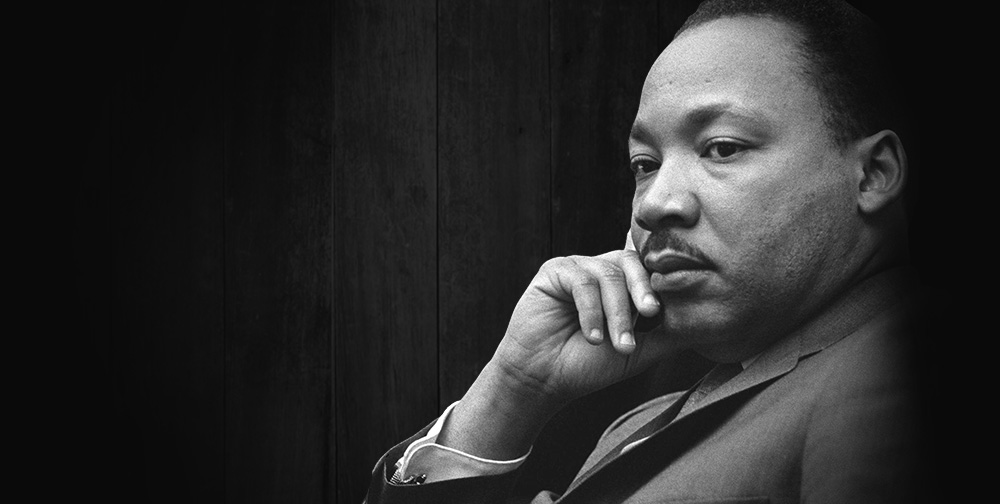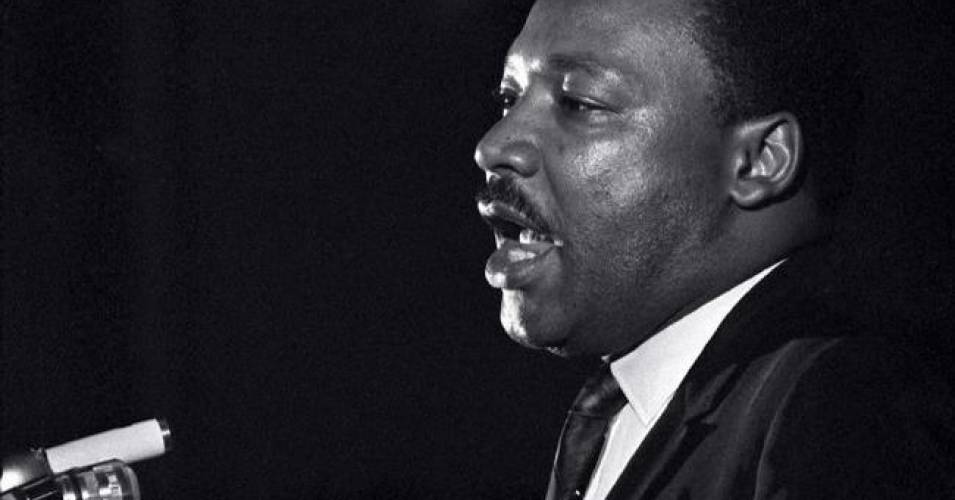
Henry Hampton‘s work — like his groundbreaking Eyes on the Prize (1987-1990) — should be applauded. His grand efforts and accomplishments — along with those of his many hardworking, talented colleagues, such as the dedicated and incomparable Judy Richardson — are praiseworthy by any standards. That said, to have one’s eyes on any prize in the realm of social activism usually means a focus on reform. And although tweaks in this and that — changes in laws, alteration of policies, etc. –are certainly necessary and worthy of one’s heartbeats, reform is not what Dr. Martin Luther King had in mind at Riverside Church half-a-century ago when he pleaded that we aim for a radical restructuring of society.
Rather, MLK was addressing the need for revolutionary change, and that cannot be brought about through piecemeal reforms. In fact, the time and energy devoted along traditional lines to tweaking elements in the system, more often than not results in diverting one and all from what Martin saw as necessary fifty years ago.
His assassination in Memphis a year to the day of his New York City-delivered “Beyond Vietnam” speech was preceded by many black leaders and their influential white allies marginalizing King. Forsaking him. He had taken an unprecedented step in criticizing the abominations of our powers that be abroad, and underscoring the need to link institutionalized ignorance with domestic poverty and militarization and much more that was considered verboten. He had crossed a line. He was no longer aligned with the proper parameters laid out by the likes of corporate power and government officials on the take. He had become an unacceptable political rake.
Since the 1968 assassination, things have only gotten infinitely worse for African-Americans and just about everyone else with regard to our major issues, But carving out inroads, like the educational one beautifully spotlighted in Robert Coles’ footage of young Ruby Bridges, is no longer enough. In fact, it never was enough. It was always a game played to funnel righteous anger a certain way, play on the hearts and minds of different demographics so as to appease one and all as much as possible, without allowing for radical transformation of society. Creating the illusion of… progress. Advances were made — yes — but they were never meant to last; they had built-in blast-apart potential because the sources of bleeding were not addressed, only temporary tourniquets applied.
Such transformation demands that one have (to coin a title) Eyes on Eternity, if you will. For to have one’s eyes focused on reform exclusively does not require a personal shifting with respect to one’s Ground of Being. Roxanne Dunbar-Ortiz in her most recent major work points out how most authentic Native Americans cannot relate to how whites go about attempting to fix this and that on a regular basis. She says that there are certain traditional values that Indians have embraced, and that their mindset precludes tinkering with legislation intermittently. As whites do routinely. As African-Americans who’ve bought into the dominant society’s values do also, as a rule. Ditto, pretty much, for one and all in this society that advocates civic engagement along the lines of Hampton’s groundbreaking work. What people seem to no longer question… except on the margins.
Eyes on the Prize was never merely an African-American story, popular misconceptions notwithstanding. It’s understandable that Hampton’s major achievement of both revisionist American history and unprecedented documentary cinema has been thought of as being — at its core — footage focused on such identity concerns. However, the two-part series in fourteen segments is really an American story starring African-Americans. Big difference there.
As things stand, Hampton’s great work compounds a certain ignorance with a certain ignorance. That is, it encourages belief in reform– what MLK rejected five decades ago for good reason — because of an epiphany he had about the relationship between never-ending domestic horror and ongoing international abominations; Dunbar-Ortiz does a good job (in the work cited above) of making the critical link clear for all readers of history, both novices and scholars.
The link is clear, but the issues which were dear to Martin’s heart can never be addressed properly with the vast majority of concerned citizens absorbing their history lessons from Hampton’s work. He’s too in The Fold. He and his glorious work rest in an enclosure that has been cleverly created by the powers that be. Just as Barack Obama was with his Harvard education, mentored by Chicago’s Pritzker family, and influenced unconscionably by Joe “I’ll Never Rock the Boat” Leiberman.
None of them will do. And Hampton’s fine achievement begs for a supplement.
And that — as Dr. Martin Luther King knew very well — demands that we have our Eyes on Eternity. Anything less takes our own personal comfort too much into account. You know what I mean, I’m sure. Individual comfort in relation to change sought is highly problematic. Worse. For it sets false limits, makes things too easy. Only asks for changes which will not change one’s habits overly much.
But when one is fighting forces which would — in a heartbeat — destroy an entire continent of Blacks before sacrificing high tech convenience, the bar must be set beyond oneself. There must be an embrace of The Sacred. And that is only possible if one is personally not a factor in The Equation.
The world is full of equations. There is not an answer for everything. But you must learn how to ask certain questions in order to deal with our collective crises. And one of them is certainly not What’s in it for me? Think of where that question is situated on the spectrum in contrast to what Ruby Bridges was thinking about when she broke down barriers in New Orleans. I know that this is a difficult, uncomfortable concept for most to grasp, but the attempt must be made to see the truth of what’s at the heart and soul of our activism today. Too many concerned citizens today express generic compassion, and empathy that is, ultimately, self-serving. That’s one major difference, as I see it, between today and what was fairly common at the height of the sixties in certain circles.
Truth be told, Eyes on Eternity is at the opposite end of the spectrum from Eyes on the Prize.
And it will not be showing at your local theater any more than it will be televised.
Jon Else has come out recently with a wonderful memoir titled, True South: Henry Hampton and Eyes on the Prize, the Landmark Television Series that Reframed the Civil Rights Movement. It’s a decent read, for sure, but in concluding this article I’m obliged to underscore that we’re all documenting ourselves to death in lieu of doing what Dr. Martin Luther King advocated a year before his assassination.
Richard Martin Oxman has been an educator and activist for over half-a-century. He would be honored to speak gratis at any educational institution which makes a request at [email protected].













































